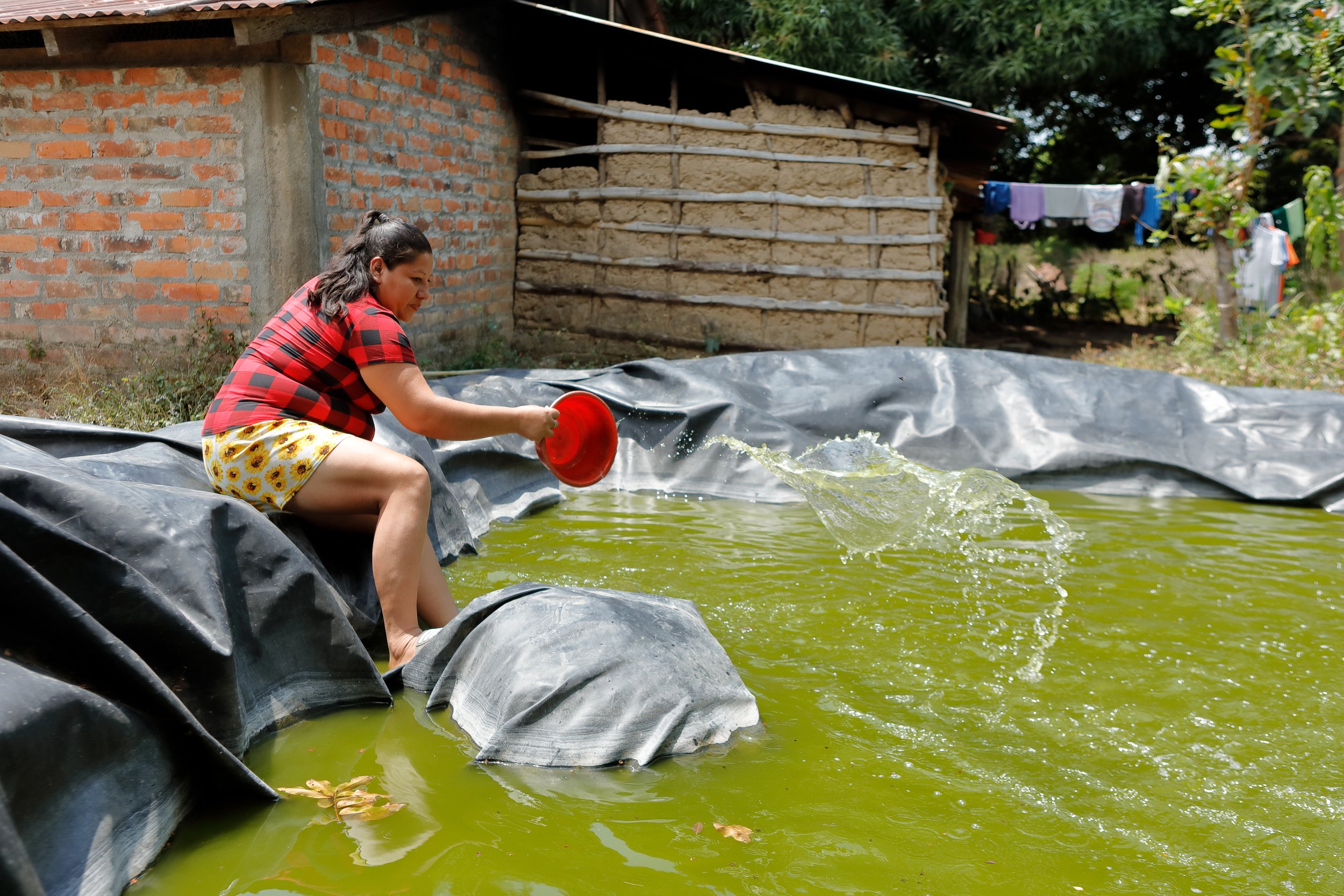
Water, Sanitation, and Hygiene
Clean water fights illnesses, improves quality of live, and helps grow local economies.
We know that water is life. Yet for the community of Tehuiste Abajo and Tehuiste Arriba, access to clean water is a daily struggle. The local water source — the river — is dry for six months of the year leaving the community to gather water from puddles or women/children to walk miles to other communities in search of water. The community’s water is highly contaminated with feces and E. coli, and 82% of the population has parasites from fecal-oral contamination. We’re continuing our work with the local government and citizens to change this as we envision a day when the entire community has access to safe, clean water.
Water is flowing in Los Tehuistes thanks to CdA’s partnership with the locally elected Water and Sanitation Committee. Since 2013, the community has invested their time and resources to support the development of a water system complete with the building of a water well, installation of home piping and storage tanks.
Water Access
The people of Tehuiste have struggled for years to gain access to a reliable source of water. Each year the community’s one source of water - the river - dries up, forcing families to drink from puddles and women and children to walk miles to other communities in search of water.
CdA has been actively working with the community since 2012 to provide reliable water access. During this time a well has been dug and the local government has been lobbied with and convinced to complete the project with an industrial water filter, pumping station, and utility service to Tehuiste homes. With your help, we will continue to bring: piping to individual homes, receptacles and sinks in individual homes, septic systems for homes and two schools. The water system will save lives and energy every year. Women will be able to spend less time hauling water and more time filtering it to prevent water-borne diseases in their families. They will also have the opportunity to focus more on their personal development for the betterment of themselves, their families and their community.
Water Storage Project
What is a pila? A pila is unique to El Salvador and functions as a water storage receptacle, sink, and laundry all at once. Sharing the costs with the community, CdA, in partnership with ADESCO and the water committee, has installed more than 40 pilas improve lives in Tehuiste.
In collaboration with Tehuiste’s Water & Sanitation Committee and ADESCO, the local community development organization, CdA has provided 60 families with a pila for water storage. A pila is unique to El Salvador and functions as a water storage receptacle and sink all at once. The pila is considered a standard in Salvadoran homes as it can store water when supply is low as well as support families in washing clothes and dishes. We have currently installed more than 40 pilas for those who live in Tehuiste.
The community is committed to this project. Each family pays $10, helping offset the cost of $45/pila.
Water Filters
We had been consistently testing the well water since 2015, but everything changed in 2023. The water, that had previously tested clean, came back with results that there was bacteria in the water that had not previously been present. We had our Farming for the Future family’s waste tested to see if they had parasites, and they did. It was obvious that the water had been the source of these. After this testing, we began trying to figure out how to get more water filters which led to an amazing development. The local government decided to step up and on March 11, 2023, they held a meeting in which it was decided that the local government was going to pay for a water treatment system for the well water for the community. This is huge as decades ago, the government did not even want to dig a well for the community and CdA paid for piping, but after years of lobbying from the local governments, they eventually did. Even though this is an amazing development, the water that had previously been pumped from the well to each family’s home had been free, and now the local government wants to charge for them to pay for the system and water treatment.




